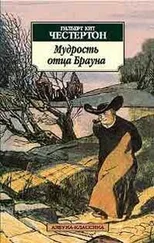Гилберт Честертон - Robert Browning
Здесь есть возможность читать онлайн «Гилберт Честертон - Robert Browning» весь текст электронной книги совершенно бесплатно (целиком полную версию без сокращений). В некоторых случаях можно слушать аудио, скачать через торрент в формате fb2 и присутствует краткое содержание. Год выпуска: 2014, Издательство: epubBooks Classics, Жанр: Биографии и Мемуары, на английском языке. Описание произведения, (предисловие) а так же отзывы посетителей доступны на портале библиотеки ЛибКат.
- Название:Robert Browning
- Автор:
- Издательство:epubBooks Classics
- Жанр:
- Год:2014
- ISBN:нет данных
- Рейтинг книги:5 / 5. Голосов: 1
-
Избранное:Добавить в избранное
- Отзывы:
-
Ваша оценка:
- 100
- 1
- 2
- 3
- 4
- 5
Robert Browning: краткое содержание, описание и аннотация
Предлагаем к чтению аннотацию, описание, краткое содержание или предисловие (зависит от того, что написал сам автор книги «Robert Browning»). Если вы не нашли необходимую информацию о книге — напишите в комментариях, мы постараемся отыскать её.
Robert Browning — читать онлайн бесплатно полную книгу (весь текст) целиком
Ниже представлен текст книги, разбитый по страницам. Система сохранения места последней прочитанной страницы, позволяет с удобством читать онлайн бесплатно книгу «Robert Browning», без необходимости каждый раз заново искать на чём Вы остановились. Поставьте закладку, и сможете в любой момент перейти на страницу, на которой закончили чтение.
Интервал:
Закладка:
"And, whether they pipe us free, fróm rats or fróm mice,
If we've promised them aught, let us keep our promise!"
This queer trait in Browning, his inability to keep a kind of demented ingenuity even out of poems in which it was quite inappropriate, is a thing which must be recognised, and recognised all the more because as a whole he was a very perfect artist, and a particularly perfect artist in the use of the grotesque. But everywhere when we go a little below the surface in Browning we find that there was something in him perverse and unusual despite all his working normality and simplicity. His mind was perfectly wholesome, but it was not made exactly like the ordinary mind. It was like a piece of strong wood with a knot in it.
The quality of what, can only be called buffoonery which is under discussion is indeed one of the many things in which Browning was more of an Elizabethan than a Victorian. He was like the Elizabethans in their belief in the normal man, in their gorgeous and over–loaded language, above all in their feeling for learning as an enjoyment and almost a frivolity. But there was nothing in which he was so thoroughly Elizabethan, and even Shakespearian, as in this fact, that when he felt inclined to write a page of quite uninteresting nonsense, he immediately did so. Many great writers have contrived to be tedious, and apparently aimless, while expounding some thought which they believed to be grave and profitable; but this frivolous stupidity had not been found in any great writer since the time of Rabelais and the time of the Elizabethans. In many of the comic scenes of Shakespeare we have precisely this elephantine ingenuity, this hunting of a pun to death through three pages. In the Elizabethan dramatists and in Browning it is no doubt to a certain extent the mark of a real hilarity. People must be very happy to be so easily amused.
In the case of what is called Browning's obscurity, the question is somewhat more difficult to handle. Many people have supposed Browning to be profound because he was obscure, and many other people, hardly less mistaken, have supposed him to be obscure because he was profound. He was frequently profound, he was occasionally obscure, but as a matter of fact the two have little or nothing to do with each other. Browning's dark and elliptical mode of speech, like his love of the grotesque, was simply a characteristic of his, a trick of is temperament, and had little or nothing to do with whether what he was expressing was profound or superficial. Suppose, for example, that a person well read in English poetry but unacquainted with Browning's style were earnestly invited to consider the following verse:—
"Hobbs hints blue—straight he turtle eats.
Nobbs prints blue—claret crowns his cup.
Nokes outdares Stokes in azure feats—
Both gorge. Who fished the murex up?
What porridge had John Keats?"
The individual so confronted would say without hesitation that it must indeed be an abstruse and indescribable thought which could only be conveyed by remarks so completely disconnected. But the point of the matter is that the thought contained in this amazing verse is not abstruse or philosophical at all, but is a perfectly ordinary and straightforward comment, which any one might have made upon an obvious fact of life. The whole verse of course begins to explain itself, if we know the meaning of the word "murex," which is the name of a sea–shell, out of which was made the celebrated blue dye of Tyre. The poet takes this blue dye as a simile for a new fashion in literature, and points out that Hobbs, Nobbs, etc., obtain fame and comfort by merely using the dye from the shell; and adds the perfectly natural comment:—
"…Who fished the murex up?
What porridge had John Keats?"
So that the verse is not subtle, and was not meant to be subtle, but is a perfectly casual piece of sentiment at the end of a light poem. Browning is not obscure because he has such deep things to say, any more than he is grotesque because he has such new things to say. He is both of these things primarily, because he likes to express himself in a particular manner. The manner is as natural to him as a man's physical voice, and it is abrupt, sketchy, allusive, and full of gaps. Here comes in the fundamental difference between Browning and such a writer as George Meredith, with whom the Philistine satirist would so often in the matter of complexity class him. The works of George Meredith are, as it were, obscure even when we know what they mean. They deal with nameless emotions, fugitive sensations, subconscious certainties and uncertainties, and it really requires a somewhat curious and unfamiliar mode of speech to indicate the presence of these. But the great part of Browning's actual sentiments, and almost all the finest and most literary of them, are perfectly plain and popular and eternal sentiments. Meredith is really a singer producing strange notes and cadences difficult to follow because of the delicate rhythm of the song he sings. Browning is simply a great demagogue, with an impediment in his speech. Or rather, to speak more strictly, Browning is a man whose excitement for the glory of the obvious is so great that his speech becomes disjointed and precipitate: he becomes eccentric through his advocacy of the ordinary, and goes mad for the love of sanity.
If Browning and George Meredith were each describing the same act, they might both be obscure, but their obscurities would be entirely different. Suppose, for instance, they were describing even so prosaic and material an act as a man being knocked downstairs by another man to whom he had given the lie, Meredith's description would refer to something which an ordinary observer would not see, or at least could not describe. It might be a sudden sense of anarchy in the brain of the assaulter, or a stupefaction and stunned serenity in that of the object of the assault. He might write, "Wainwood's 'Men vary in veracity,' brought the baronet's arm up. He felt the doors of his brain burst, and Wainwood a swift rushing of himself through air accompanied with a clarity as of the annihilated." Meredith, in other words, would speak queerly because he was describing queer mental experiences. But Browning might simply be describing the material incident of the man being knocked downstairs, and his description would run:—
"What then? 'You lie' and doormat below stairs
Takes bump from back."
This is not subtlety, but merely a kind of insane swiftness. Browning is not like Meredith, anxious to pause and examine the sensations of the combatants, nor does he become obscure through this anxiety. He is only so anxious to get his man to the bottom of the stairs quickly that he leaves out about half the story.
Many who could understand that ruggedness might be an artistic quality, would decisively, and in most cases rightly, deny that obscurity could under any conceivable circumstances be an artistic quality. But here again Browning's work requires a somewhat more cautious and sympathetic analysis. There is a certain kind of fascination, a strictly artistic fascination, which arises from a matter being hinted at in such a way as to leave a certain tormenting uncertainty even at the end. It is well sometimes to half understand a poem in the same manner that we half understand the world. One of the deepest and strangest of all human moods is the mood which will suddenly strike us perhaps in a garden at night, or deep in sloping meadows, the feeling that every flower and leaf has just uttered something stupendously direct and important, and that we have by a prodigy of imbecility not heard or understood it. There is a certain poetic value, and that a genuine one, in this sense of having missed the full meaning of things. There is beauty, not only in wisdom, but in this dazed and dramatic ignorance.
Читать дальшеИнтервал:
Закладка:
Похожие книги на «Robert Browning»
Представляем Вашему вниманию похожие книги на «Robert Browning» списком для выбора. Мы отобрали схожую по названию и смыслу литературу в надежде предоставить читателям больше вариантов отыскать новые, интересные, ещё непрочитанные произведения.
Обсуждение, отзывы о книге «Robert Browning» и просто собственные мнения читателей. Оставьте ваши комментарии, напишите, что Вы думаете о произведении, его смысле или главных героях. Укажите что конкретно понравилось, а что нет, и почему Вы так считаете.










